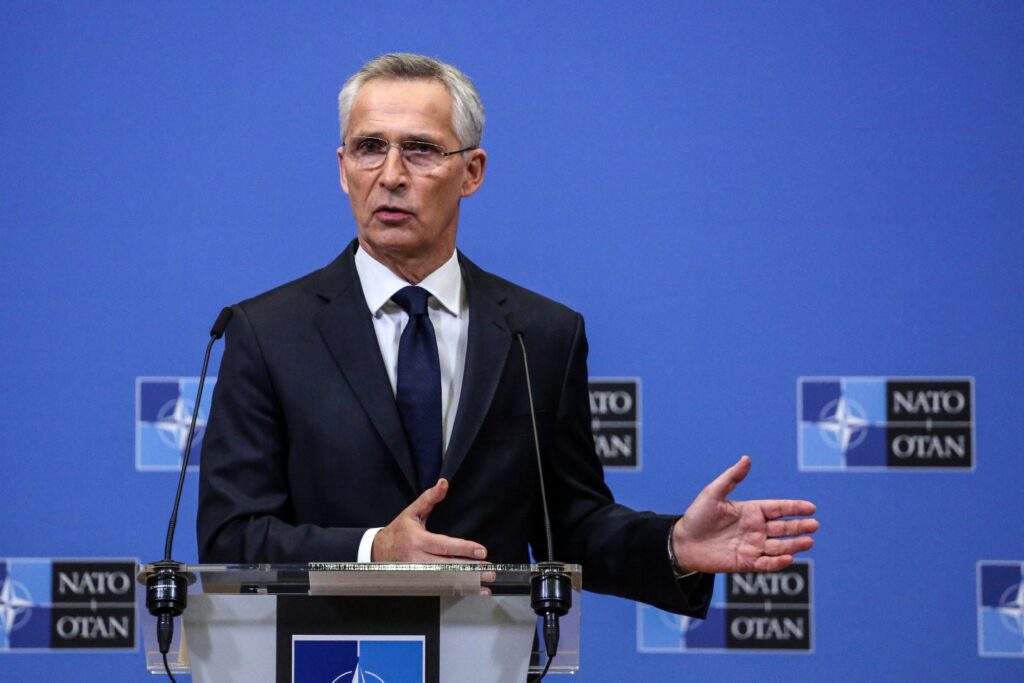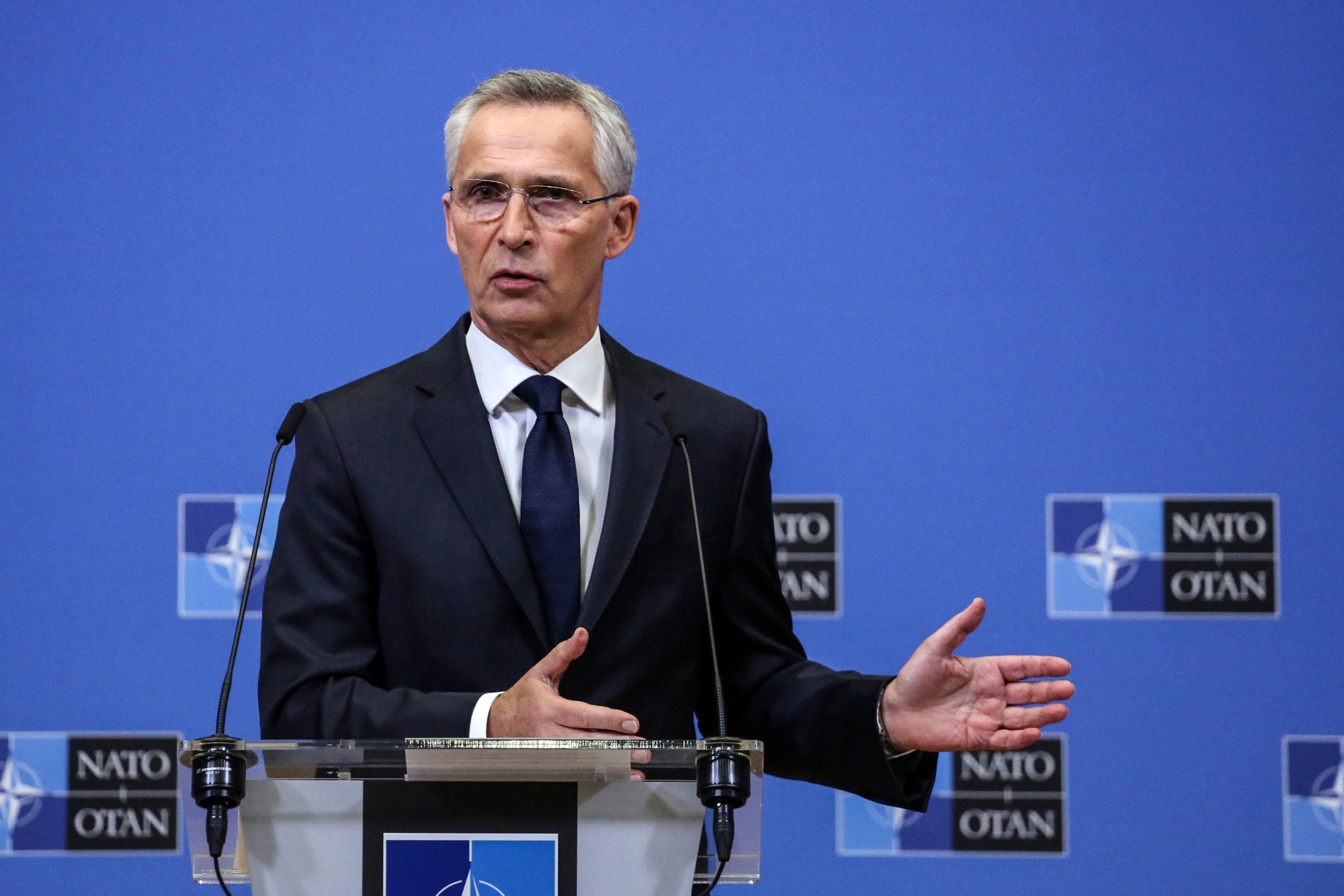
Stoltenberg says Kyiv had ‘urgent needs’ and delays in providing support can have consequences on the battlefield.
NATO chief Jens Stoltenberg has said alliance members must guarantee long-term weapon deliveries for Ukraine, as ministers discussed a proposal for a 100-billion-euro ($107bn), five-year fund.
Speaking before a meeting of NATO foreign ministers in Brussels on Wednesday, Stoltenberg said Kyiv had “urgent needs,” adding that “any delay in providing support has consequences on the battlefield as we speak.”
“We must ensure reliable and predictable security assistance to Ukraine for the long haul so that we rely less on the voluntary contributions and more on NATO commitments, less on short-term offers and more on multiyear pledges,” he said.
Separately on Wednesday, Ukraine lowered the military conscription age from 27 to 25 as it aimed to replenish its depleted ranks after more than two years of war.
A shortage of infantry combined with a severe ammunition shortfall has helped hand Russian troops the initiative.
“The reason why we do this is the situation on the battlefield in Ukraine. It is serious,” Stoltenberg told reporters. “We see how Russia is pushing, and we see how they try to win this war by just waiting us out.”
The plan is to have NATO coordinate the work of the Ukraine Defense Contact Group – a forum of around 50 countries that has regularly gathered during the war to drum up weapons and ammunition for Ukraine – rather than the US European Command.
US General Christopher Cavoli is NATO’s top military commander, as well as the head of US European Command, so the person in charge would not change. But Stoltenberg said a formal “institutional framework” is needed as the war drags on and that NATO can provide it.
Advertisement
While the move would not see NATO directly providing weapons to Ukraine – as an organisation with 32 members that functions by consensus, the allies only agree to send non-lethal aid like demining equipment, fuel and medical supplies – it would mark a new phase in its involvement in the war.
“More discussion needed
While NATO is desperate to do more for Ukraine, particularly while Russia holds a military advantage, its members are not ready to offer the country their ultimate security guarantee: membership.
Nor do they want to be dragged into a wider war with a nuclear-armed military power like Russia.
Under the new plan, which is expected to be endorsed by US President Joe Biden and his counterparts at their next summit in Washington in July, NATO would coordinate the military side of Ukraine support efforts by assessing Ukraine’s needs, collecting pledges and running meetings.
“Moscow needs to understand that they cannot achieve their goals on the battlefield and they cannot wait us out,” Stoltenberg said, without giving details of his proposal.
However, some have urged caution saying there are many questions on where financing would come from and the plan could change dramatically by July.
“It’s dangerous to make promises that we can’t keep,” Belgian Foreign Minister Hadja Lahbib told reporters when asked how much her country might be willing to contribute to a 100-billion-euro fund. She said the plan requires more discussion.
Arriving at the talks, German Foreign Minister Annalena Baerbock described the proposal as “right and important”, saying that aid for Ukraine should be disbursed via “reliable, long-term structures”.
Latvian Foreign Minister Krisjanis Karins also welcomed the 100-billion-euro fund proposal, suggesting that contributions could be a percentage of each member’s GDP.
Hungary signalled scepticism about at least some elements of Stoltenberg’s proposal.
Foreign Minister Peter Szijjarto “firmly stated Hungary will not back any @NATO proposals that might draw the alliance closer to war or shift it from a defensive to an offensive coalition,” government spokesperson Zoltan Kovacs said on X.
Belgian Foreign Minister Hadja Lahbib said ministers would discuss the feasibility of Stoltenberg’s proposal and what each could contribute.
Russia accused NATO of returning to a Cold War mindset.
Foreign Ministry spokesperson Maria Zakharova said, “In relations with Russia, the bloc has returned to Cold War setting.”
She said NATO has no place in the “multipolar world” that Moscow says it seeks to build to end US dominance, but that it remains the focus of Russian attention.


